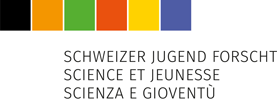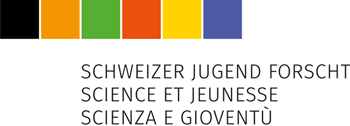Geschichte | Geographie | Wirtschaft | Gesellschaft
Enya Ernst, 2004 | Rapperswil-Jona, SG
There are events that are unforgettable for everyone who witnessed them: the Fall of the Berlin Wall in November 1989 is such an event. This paper deals with the historical context of the Peaceful Revolution in the GDR which led to the Fall of said Berlin Wall, as well as the creation of a podcast called “Die Friedliche Revolution – Ein Podcast”. The podcast focuses on the testimonies of contemporary witnesses who experienced the end of the GDR. The background of their reports is explained by a fact-based narration with information on the GDR. Additionally, the work deals with the question of who was behind this civil rights movement and what characterized the people who were able to gather the courage to fight for their rights.
Introduction
The main research questions regarding the historical background were: (I) How could the civil rights movement in the GDR develop under the circumstances of a suppressing dictatorship, and why exactly did the peak of it happen in 1989? (II) What happened to the civil rights movement after the Fall of the Berlin Wall? (III) How was it possible that the revolution happened in a peaceful way? (IIII) Who was behind the civil rights movement? The main research questions concerning the production of the podcast were as follows: (I) What is the best way to produce a podcast with contemporary witnesses? (II) In what ways does the historical theory differ or support the narratives of the contemporary witnesses?
Methods
Through the website www.zeitzeugenbuero.de I found six contemporary witnesses, who were willing to talk to me about their experiences in the GDR. To meet them, I travelled to Berlin. My recording equipment, as well as technical know-how was provided by the youth radio station radio4tng, where I work in my free time. Furthermore, several people working in the podcast business provided help and advice. My narration was recorded in the studio of radio4tng. The podcast was edited with Adobe Audition 3.0. The result is a podcast of 3 episodes, each 40 minutes long. The historical background of the paper was written in the classical style of a research paper, where I could explain the Peaceful Revolution 1989 in more detail. I used books, websites, newspapers, and the recorded testimonies as sources.
Results
The contemporary witnesses proved to be an insightful historical source, although one must consider the statements in the context of oral history. Through the eyewitnesses, I was able to gain a deeper, much more personal insight into the complex topic surrounding the fall of the Berlin Wall. The thesis that the revolution in the GDR was peaceful turned out to be only partly true, as the Stasi took violent measures before October 1989. Another thing I realized was that many people in the civil rights movement did not want the GDR to decay; they wanted to build a more democratic socialism. Furthermore, I understood how quickly the civil rights movement fell apart after the fall of the Berlin Wall. Moreover, my work shows that the civil rights movement was very heterogeneous. Finally, the product of my paper was the podcast.
Discussion
To do a bilingual paper by having a product in German and a paper written in English turned out as rather challenging. The stories of the contemporary witnesses in my paper cannot be seen as undisputed facts as they are a result of oral history. If I wanted to have a representative perspective of contemporary witnesses, I would have had to convey a quantitative survey with several thousand people. However, a podcast would then not have been possible. The podcast therefore does not have a great validation in quantity. By writing this paper, I learned a lot about the Peaceful Revolution 1989, how to interact with contemporary witnesses and how to produce a podcast. The result was a podcast with testimonies about the GDR and from the perspective of a teenager – a format I have not encountered before.
Conclusions
An aspect which further research could be conducted on are the long-term consequences of the Peaceful Revolution 1989 on German society today. Furthermore, the “Third Way” – the idea of a democratic socialism developed by a part of the civil rights movement – would be a fitting topic for a philosophical paper. Producing a podcast is time-consuming. However, it was worth it. Presenting the recorded memories of witnesses to an audience is a great way of deepening a topic. Meeting people who have experienced history was a great pleasure for me. Being able to share those interviews with everyone through a podcast made it even better, as it combined my two big passions: history and journalism.
Würdigung durch die Expertin
Nicoletta Cimmino
Enya Ernst hat etwas geschafft, an dem gestandene Journalistinnen und Journalisten regelmässig scheitern: Sie hat eine Geschichte so recherchiert, geschrieben und erzählt, dass man sie nicht mehr vergisst. Mit bemerkenswerter Neugierde und gründlicher Vorbereitung ist sie ihren GesprächspartnerInnen begegnet, und hat deren Erlebnisse anschliessend in packender Art und Weise verarbeitet. Ihre Matura-Arbeit ist tadellos recherchiert und elegant geschrieben. Der Podcast überzeugt bei der Dramaturgie, der Moderation und der Produktion.
Prädikat:
hervorragend
Sonderpreis Fachhochschule Ostschweiz FHO – Singapore NYAAC Exchange Programme
Kantonsschule Wattwil
Lehrer: Anselm Zikeli



